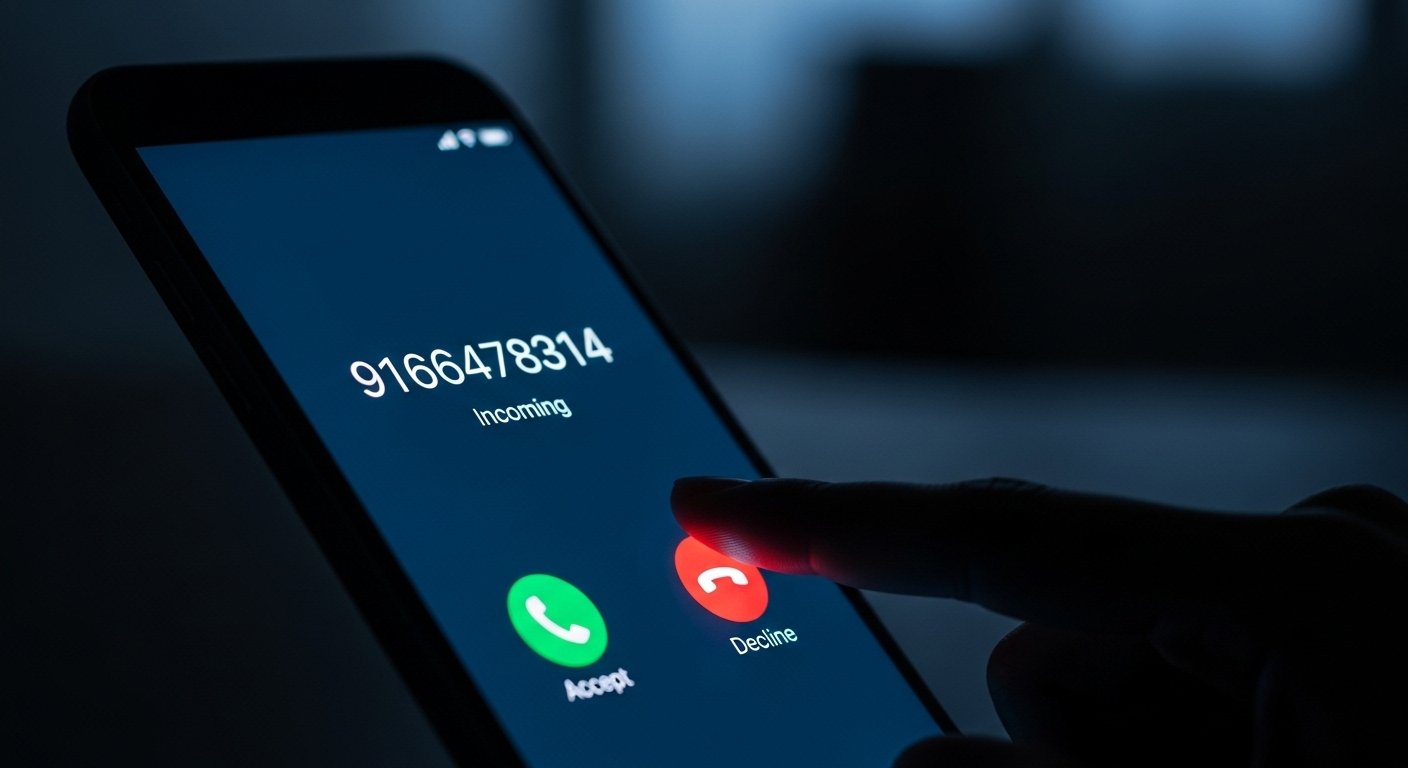If you’ve recently received a call from 9166478314, you’re not alone. Many people report receiving similar calls from unfamiliar numbers that look legitimate but often turn out to be spam or telemarketing attempts.
Unknown calls can be confusing — is it a real business trying to reach you, or just another scammer fishing for personal details? In this article, we’ll break down what’s known about 9166478314, how to identify whether it’s safe, and what to do if you keep getting these calls.
Understanding Unknown Numbers Like 9166478314
In today’s digital age, our phones ring constantly — from delivery updates and bank reminders to random marketing pitches. The problem is, not every caller is genuine.
Phone numbers like 9166478314 may appear to be from a local or national area code, giving a sense of authenticity. But appearances can be misleading. Scammers often spoof numbers (fake them) to look like they’re calling from legitimate sources — a technique used to trick people into answering.
Why You Might Be Getting a Call from 9166478314
Here are a few common possibilities:
1. Telemarketing or Promotional Offers
The most common reason unknown numbers call is simple: sales and promotions. Companies use automated dialers to reach hundreds of people a day. If you pick up, you’ll likely hear a pre-recorded message or a representative offering discounts, credit cards, or loans.
2. Survey or Research Calls
Sometimes, the number could belong to a survey company conducting polls or market research. These calls are usually harmless, but it’s always best to confirm the company’s name before sharing any details.
3. Scam or Phishing Attempts
Unfortunately, the darker side of such calls involves fraudulent schemes. Scammers may pretend to be from your bank, internet provider, or even a government department. Their goal is to get personal information like OTPs, credit card details, or passwords.
If 9166478314 asks for sensitive data, hang up immediately.
4. Customer Service or Missed Verification
In rare cases, it could genuinely be a customer service callback from a company you interacted with — especially if you recently requested support or filled out an online form. However, if you’re unsure, verify the call through the company’s official website or app instead of trusting the caller blindly.
Signs That 9166478314 Might Be a Scam
It’s not always easy to spot scams at first glance, but a few signs can help you decide whether to pick up or ignore such numbers.
-
Pressure to Act Quickly: Scammers often create urgency — “Your account will be blocked in 10 minutes!”
-
Requests for Personal Details: Legitimate businesses will never ask for passwords, OTPs, or bank details over the phone.
-
Robotic or Pre-Recorded Voices: Many scam calls use automated recordings to sound official.
-
Unusual Caller ID or VoIP Numbers: Even if the number looks local, it could be internet-based (VoIP).
-
Frequent Missed Calls: If the number calls repeatedly but leaves no voicemail, it’s likely not a genuine company.
What to Do If You Receive a Call from 9166478314
Here are some practical steps to protect yourself:
1. Don’t Share Any Personal Information
Even if the caller sounds convincing, never share your OTP, credit card number, or password. Scammers can sound polite, professional, and very persuasive.
2. Let Unknown Calls Go to Voicemail
If you don’t recognize the number, let it ring out. If it’s important, the caller will leave a message. This gives you time to research before calling back.
3. Use Reverse Phone Lookup Tools
Several online tools allow you to check feedback or reports about a number. If others have flagged 9166478314 as spam, you’ll see warnings there.
4. Block and Report the Number
If the number calls repeatedly, block it on your phone and report it as spam. On Android and iPhone, you can do this easily in your call log. You can also report it to your telecom provider.
5. Register with Do Not Call (DNC) Services
In many countries, you can register your number on a Do Not Call list to reduce unwanted marketing calls. It doesn’t stop all spam, but it helps filter out legitimate telemarketers.
How Scammers Use Numbers Like 9166478314
Scammers have become incredibly clever. They often rotate through different numbers — sometimes using the same area code as your location to make the call seem more trustworthy.
Once you answer, your number gets marked as “active,” which means you might start receiving more spam calls later. That’s why experts recommend not answering unknown calls unless you’re expecting one.
Some scammers may even record your voice to use for identity verification scams. For instance, if they ask, “Can you hear me?” and you reply “Yes,” that audio clip can be misused in fraudulent recordings.
Protecting Yourself from Scam Calls
A few preventive steps can make a big difference:
-
Install a Caller ID App (like Truecaller) to identify unknown numbers quickly.
-
Keep Your Phone Number Private when signing up for websites or giveaways.
-
Educate Elderly Family Members, as they are more often targeted by phone scams.
-
Update Your Phone’s Security Settings to automatically silence suspected spam calls.
What If You Already Answered the Call?
Don’t panic. If you picked up and later realized the call was suspicious:
-
Disconnect immediately if they ask for personal details.
-
Change your passwords if you shared any information.
-
Monitor your bank accounts for unusual activity.
-
Report the incident to your phone carrier or local cybercrime unit.
The faster you act, the safer you stay.
Final Thoughts
Getting calls from numbers like 9166478314 can be annoying and sometimes even dangerous. In most reported cases, such numbers are linked to telemarketing or scam attempts, not genuine businesses.
The best approach is simple — stay alert, don’t overshare, and verify before you trust. Technology makes it easier for scammers to reach us, but with awareness and the right precautions, we can stay one step ahead.
FAQs About 9166478314
1. Is 9166478314 a scam number?
It’s not confirmed who owns the number, but many users report it as potential spam or telemarketing. Avoid sharing personal details until verified.
2. Can I block or report 9166478314?
Yes. You can block the number directly from your phone’s call log and report it as spam through your carrier or caller ID apps.
3. What should I do if I accidentally shared my information?
Change your passwords immediately, contact your bank if sensitive data was shared, and report the issue to local cybercrime authorities for safety.

